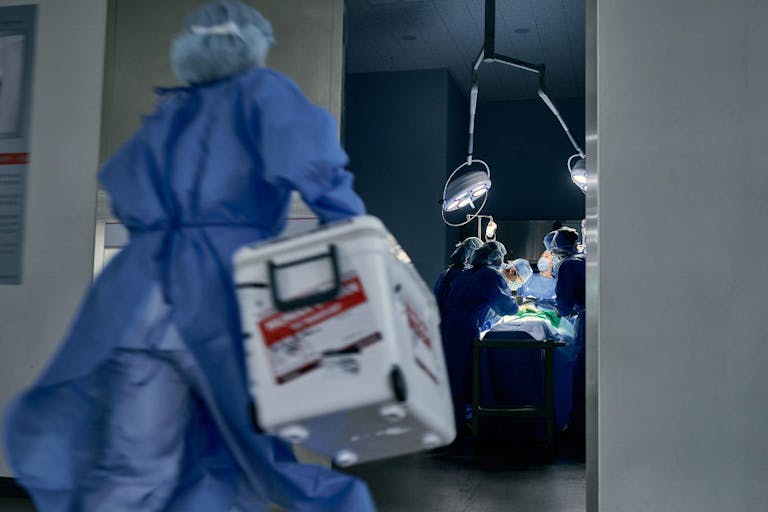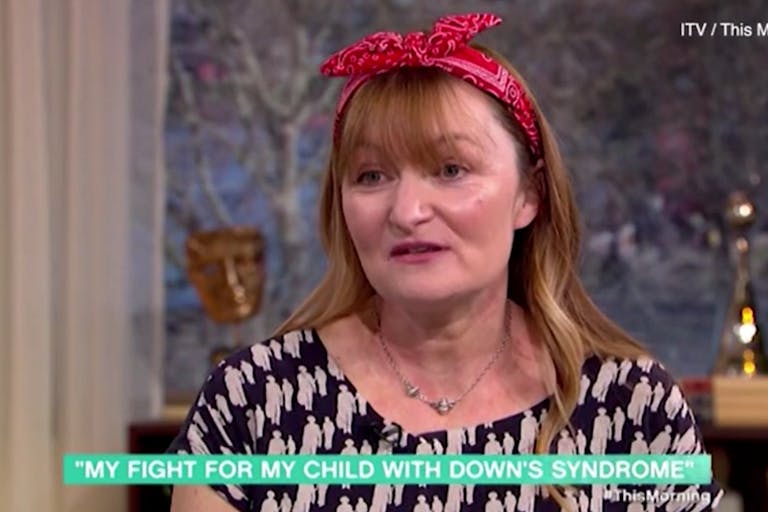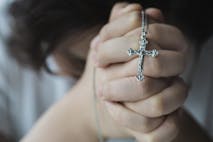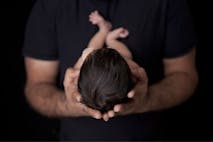
Australian woman donates organs after self-administering deadly suicide drugs
Cassy Cooke
·
Mom says docs scheduled abortion without her consent because of son’s Down syndrome
A mother of a child with Down syndrome is speaking out after doctors repeatedly pressured her to have an abortion — even going so far as to schedule one for her without her consent.
Natalie O’Rourke spoke with the Sunday Times and appeared on ITV’s This Morning for World Down Syndrome Day, and told presenters Holly Willoughby and Phillip Scofield how doctors assumed her son’s life was worthless before he was even born. Her pregnancy was a surprise, and at first, she didn’t know how far along she was until she had an ultrasound — and immediately, she was flooded with negativity.
O’Rourke already had an eight-month-old daughter and lived in a small home with her husband, Dickie. But at her dating ultrasound, she was told something was wrong, and without being given more information, was fast-tracked for an appointment the same day at Queen Charlotte’s & Chelsea Hospital. There, she was told her baby likely had Down syndrome; doctors told her to undergo chorionic villus sampling (CVS), where cells are withdrawn from the placenta.
“Dickie said, ‘If it’s positive, I guess we’ve got a few weeks to decide if we want an abortion,'” she recalled. “And the doctor replied, ‘No, if the baby has a disability like Down’s, abortion is legal right up to birth.’”
She was so angry, she left the room. “It sickened me,” she said. “The implication was that this baby was of so little value, it may as well be dead. My overwhelming feeling was of protection. I knew if I wanted to keep it I would have to fight, because the message was clear — if the baby is damaged, different, faulty, it isn’t valued. So why would you have it and how could you love it?”
Later, she received a phone call confirming that her son had Down syndrome; moments later, the phone rang again. It was a local MSI Reproductive Choices facility, informing her that she had an abortion scheduled for the next day. When she told them to cancel the appointment, the nurse refused.
“I wasn’t surprised the baby had Down’s syndrome — I kind of knew,” she said. “The real shocker was that I was suddenly on this pathway to a termination. No one seemed to consider that I might want it to live.”
Her husband, meanwhile, also wanted her to have an abortion. But O’Rourke refused still. “I just knew that as soon as he was born, we would love him,” she said, adding, “I knew that Dickie would be an amazing dad — and he is. But getting to that point was a massive fight.”

During counseling sessions, he continued to push her to have an abortion, to the point that she told him she would divorce him before taking her son’s life.
“He begged me to have an abortion. He said, ‘Our lives will be over.’ And I said, ‘You go, then. We’ll be all right without you,'” she recalled. “Then, when I was about seven months pregnant, we came out of a counseling session and Dickie was kind of deflated. He said, ‘You’re going to have this baby, aren’t you?’ I said, ‘Yes I am.’ And he said, ‘Can I call him Woody [after the American folk singer Woody Guthrie]?’ And that was that.”
O’Rourke was so scared and distrustful of the medical establishment that when she went into labor, she held off on going to the hospital until the absolute last second, thinking her son would be deprived of medical care. “I was convinced everyone just wanted him to die,” she said, and added, “He was beautiful, like a tiny bird. I remember crying and whispering, ‘I fought so hard for you.’”
Today, Woody is a happy, healthy 10-year-old, and she’s aware of how people see him — including people who she believes likely had abortions. As the Sunday Times noted, births of children with Down syndrome have fallen by 54% across Europe as women receive prenatal testing and are then pressured to abort.
“You get all sorts of looks when you have a child with Down syndrome,” she said. “The worst is pity. But there’s another look I’d see on other women’s faces when Woody was a baby — it’s a sadness, a wistfulness. And I’d think, ah, you had the termination, didn’t you?”
People with Down syndrome are frequently devalued, but O’Rourke said people need a better perspective.
“In their eyes, he was going to be a drain on society and his life would have no value, but actually he is a life enhancer,” she explained. “He enhances anybody’s life that he meets. If you could measure joy it would be off the scale.”
Live Action News is pro-life news and commentary from a pro-life perspective.
Contact editor@liveaction.org for questions, corrections, or if you are seeking permission to reprint any Live Action News content.
Guest Articles: To submit a guest article to Live Action News, email editor@liveaction.org with an attached Word document of 800-1000 words. Please also attach any photos relevant to your submission if applicable. If your submission is accepted for publication, you will be notified within three weeks. Guest articles are not compensated (see our Open License Agreement). Thank you for your interest in Live Action News!

Cassy Cooke
·
International
Bridget Sielicki
·
Human Rights
Angeline Tan
·
Politics
Nancy Flanders
·
Human Rights
Angeline Tan
·
Human Rights
Bridget Sielicki
·
International
Cassy Cooke
·
International
Cassy Cooke
·
Analysis
Cassy Cooke
·
Politics
Cassy Cooke
·
Analysis
Cassy Cooke
·